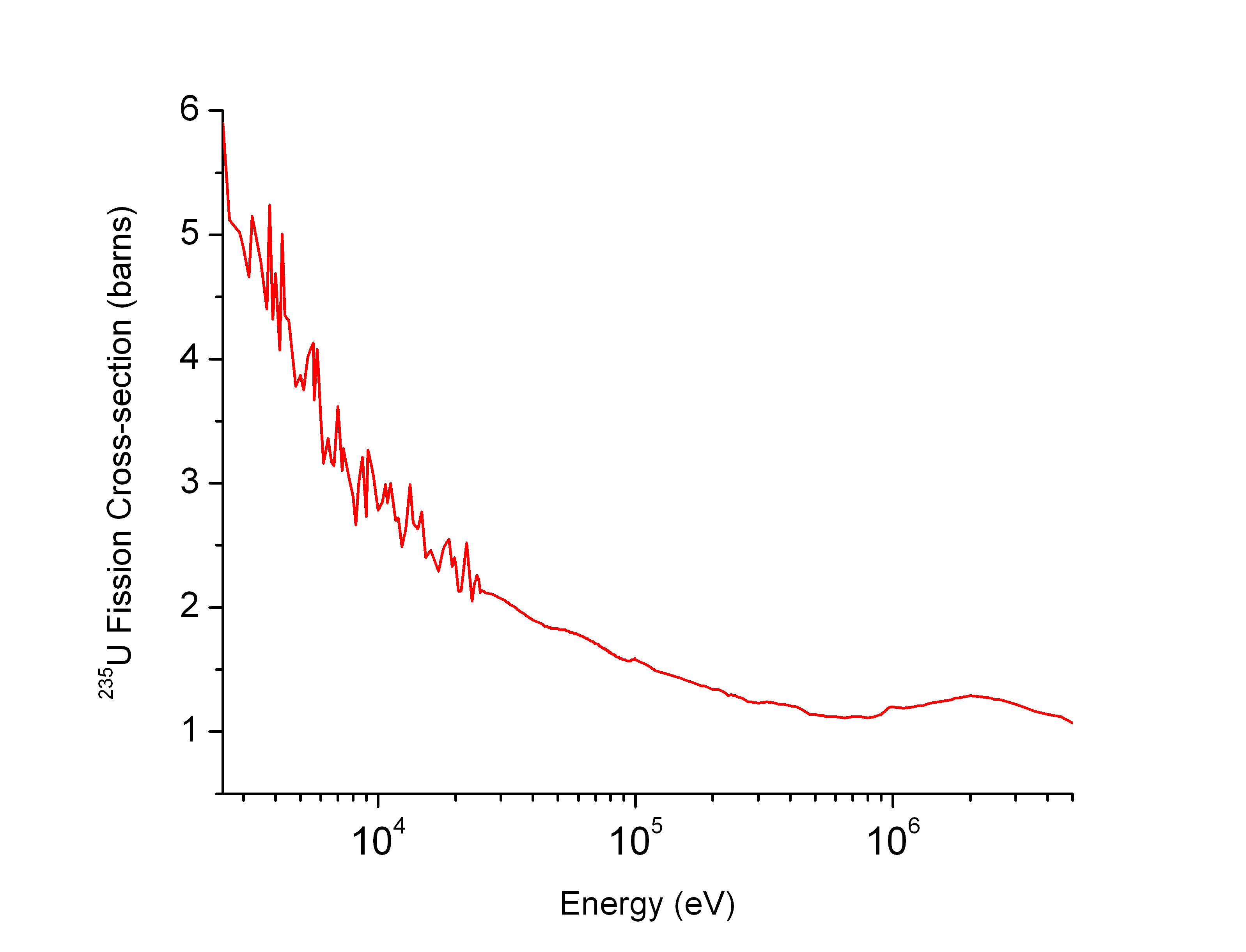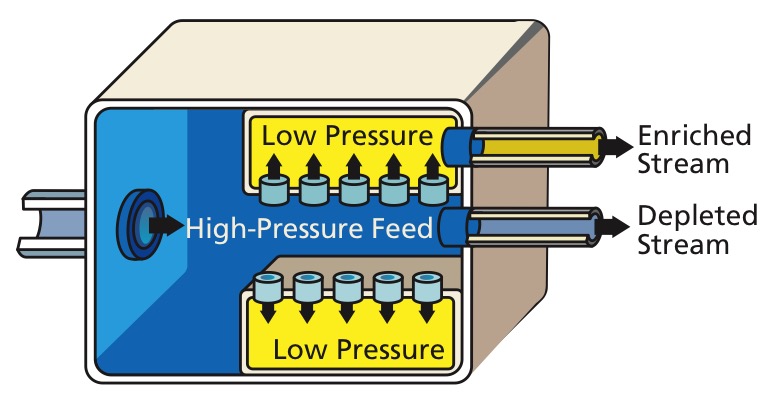This isotope shows up as an inevitable contaminant in Plutonium-239 for nuclear weapons, because it emits neutrons too fast and makes it harder to assemble the critical mass without fizzle.
It is the presence of this contaminant that made implosion-type fission weapon a necessity: Section "Gun-type fission weapons don't work with plutonium".
Plutonium-240 is a contaminant.
These are neutrons that have reached the thermal equilibrium according to the Maxwell-Boltzmann distribution after having bounced around many times without undergoing neutron capture.
Good fissile material is material that is able to absorb thermal neutrons and continue the reaction, because that's the type of neutron you end up getting the most of.
This isotope separation method was the first big successful method, having been used in the Manhattan Project, notably in the K-25 reactor.
This method was superseded by the more efficient gas centrifuges.
Comptes rendus de l'Académie des Sciences by  Ciro Santilli 40 Created 2024-08-14 Updated 2025-07-16
Ciro Santilli 40 Created 2024-08-14 Updated 2025-07-16
Apparently there were biweekly reports, that were grouped and published biannually on January and July, each one with a sequential tome number.
For example, both Marie Curie's Polonium paper and Marie Curie's Radium paper were published in the second half of 1898 and fell in tome 127.
Public domain publication list: archive.org/search?query=comptes+rendus+academie+des+sciences&sort=-date&and%5B%5D=collection%3A%22pub_comptes-rendus-hebdomadaires-academie-des-sciences%22 but some years are randomly missing like 1898?
OK from here you can find all of them more clearly: www.academie-sciences.fr/en/Transmettre-les-connaissances/comptes-rendus-de-l-academie-des-sciences-numerisees-sur-le-site-de-la-bibliotheque-nationale-de-france.html
The RaLa Experiment by Our Own Devices
. Source. Has some good mentions of Uranium vs Plutonium in nuclear weapon design.Bibliography:
- Open Q&As:
- Closed Q&As:
Pinned article: Introduction to the OurBigBook Project
Welcome to the OurBigBook Project! Our goal is to create the perfect publishing platform for STEM subjects, and get university-level students to write the best free STEM tutorials ever.
Everyone is welcome to create an account and play with the site: ourbigbook.com/go/register. We belive that students themselves can write amazing tutorials, but teachers are welcome too. You can write about anything you want, it doesn't have to be STEM or even educational. Silly test content is very welcome and you won't be penalized in any way. Just keep it legal!
Intro to OurBigBook
. Source. We have two killer features:
- topics: topics group articles by different users with the same title, e.g. here is the topic for the "Fundamental Theorem of Calculus" ourbigbook.com/go/topic/fundamental-theorem-of-calculusArticles of different users are sorted by upvote within each article page. This feature is a bit like:
- a Wikipedia where each user can have their own version of each article
- a Q&A website like Stack Overflow, where multiple people can give their views on a given topic, and the best ones are sorted by upvote. Except you don't need to wait for someone to ask first, and any topic goes, no matter how narrow or broad
This feature makes it possible for readers to find better explanations of any topic created by other writers. And it allows writers to create an explanation in a place that readers might actually find it.Figure 1. Screenshot of the "Derivative" topic page. View it live at: ourbigbook.com/go/topic/derivativeVideo 2. OurBigBook Web topics demo. Source. - local editing: you can store all your personal knowledge base content locally in a plaintext markup format that can be edited locally and published either:This way you can be sure that even if OurBigBook.com were to go down one day (which we have no plans to do as it is quite cheap to host!), your content will still be perfectly readable as a static site.
- to OurBigBook.com to get awesome multi-user features like topics and likes
- as HTML files to a static website, which you can host yourself for free on many external providers like GitHub Pages, and remain in full control
Figure 3. Visual Studio Code extension installation.Figure 4. Visual Studio Code extension tree navigation.Figure 5. Web editor. You can also edit articles on the Web editor without installing anything locally.Video 3. Edit locally and publish demo. Source. This shows editing OurBigBook Markup and publishing it using the Visual Studio Code extension.Video 4. OurBigBook Visual Studio Code extension editing and navigation demo. Source. - Infinitely deep tables of contents:
All our software is open source and hosted at: github.com/ourbigbook/ourbigbook
Further documentation can be found at: docs.ourbigbook.com
Feel free to reach our to us for any help or suggestions: docs.ourbigbook.com/#contact








